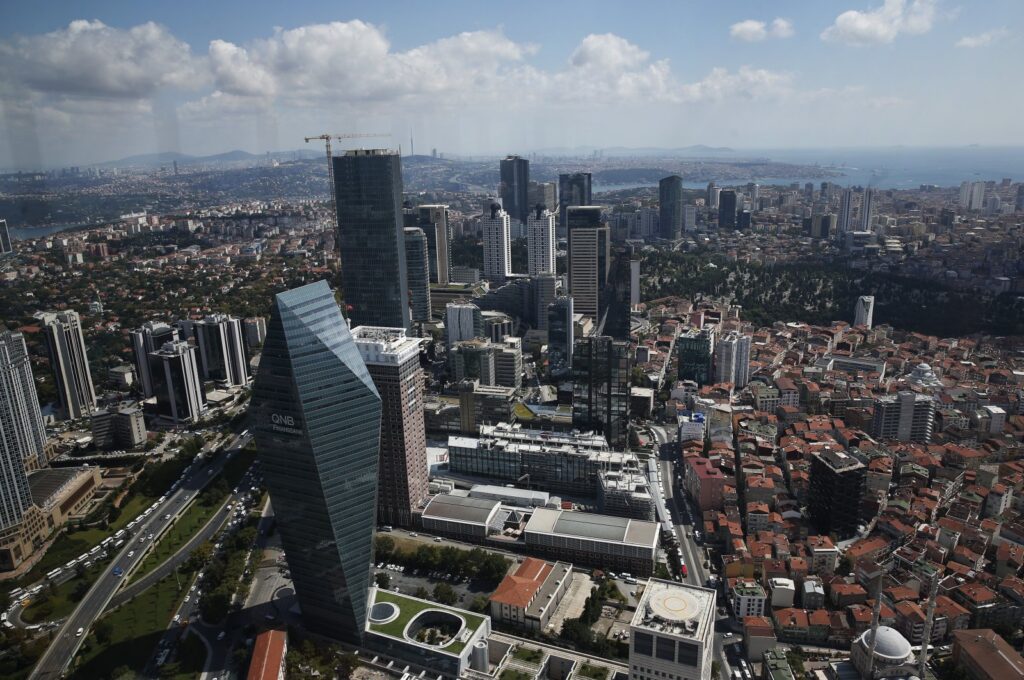Turkey’s economic secretary said on Tuesday that legislative preparations for new regulations are nearing completion and that Turkey will join the list of countries introducing a minimum corporate tax for multinational companies.
Finance Minister Mehmet Şimşek stressed the global initiative, stressing that its introduction will help prevent other countries from claiming taxes that are rightfully owed to Turkey.
“It is inevitable to implement regulations to collect minimum corporate taxes from multinational companies operating in Turkey, otherwise other countries may claim taxes that we have not collected,” Simsek told Anadolu Agency (AA).
In 2021, some 140 member countries of the Organization for Economic Cooperation and Development (OECD) reached a landmark agreement on a global minimum tax rate of 15%. The so-called “Pillar Two” agreement was intended to stop a vicious cycle of countries competitively lowering corporate taxes to attract investment and shift profits to their home countries by multinational corporations.
The global minimum, which comes into force this year, is aimed at preventing large multinational companies in particular from booking profits in low-tax countries.
“The agreement envisaged that a minimum corporate tax rate of 15 percent would apply to branches, subsidiaries and establishments of multinational companies located in low-tax countries and with annual consolidated sales of more than 750 million euros ($817 million),” Şimşek said.
“More than 30 countries, primarily in the European Union, have enacted legislation to implement the tax on income in 2024,” he explained.
Tax collection hierarchy
The OECD, which led the agreement from negotiation to implementation, says the introduction of the global minimum tax rate would halve the average gap in tax rates between tax havens and the rest of the world, from 14 percentage points to 7 percentage points.
As a result, the organization estimates the economic impact, the location of multinational companies’ overseas investments is likely to be increasingly driven by things like employee education and infrastructure, rather than where they can reduce overall taxes.
Şimşek gave a detailed explanation of the tax collection process under the new regime.
“If a subsidiary of a multinational corporation pays less than 15 percent corporate tax in a particular country, the country that has enacted a minimum tax rate can claim the difference,” he said.
The primary right to levy additional taxes lies with the country in which the company operates, he added.
“If the country in question does not have a minimum corporate tax, the country where the company is headquartered can levy this tax. Also, if the country in question does not have a minimum corporate tax, third countries where companies belonging to the same group are located can levy the tax,” Şimşek explained.
“This model aims to ensure that the profits of multinational companies are subject to the 15% tax burden in any case.”
Avoidance of transfer of rights
Şimşek said countries that do not implement a global minimum tax rate risk transferring their taxing rights to other countries, and stressed the need to accelerate legislative efforts around the world.
He stressed that for Turkey to retain its taxing power, it is imperative to establish regulations, otherwise the taxes it cannot collect will be charged to other countries.
He said efforts were underway to introduce the practice and preparations were in the final stages.
According to Simsek, there are around 80,000 foreign companies operating in Turkey, of which 2,134 have their main operations overseas.
“Only around 2.5 percent of these multinational companies exceed the 750 million euro threshold. We are looking at alternative models to protect and utilise the tax benefits these companies enjoy. Our ministry is working closely with the Ministry of Industry and Technology to develop alternatives that will continue to encourage investment in our country,” he said.
The OECD estimates that around 36% of corporate profits are currently taxed at rates below 15%; after the implementation of the global minimum tax rate, just 7% would be below that threshold.
Globally, governments are expected to increase corporate tax revenues by $155 billion to $192 billion a year, an increase of 6.5 percent to 8.1 percent, according to the Paris-based organization.

Daily Saba Newsletter
Stay up to date on what’s happening in Turkey, the region, and the world.
sign up
You can unsubscribe at any time. By signing up, you agree to the Terms of Use and Privacy Policy. This site is protected by reCAPTCHA and the Google Privacy Policy and Terms of Use apply.


